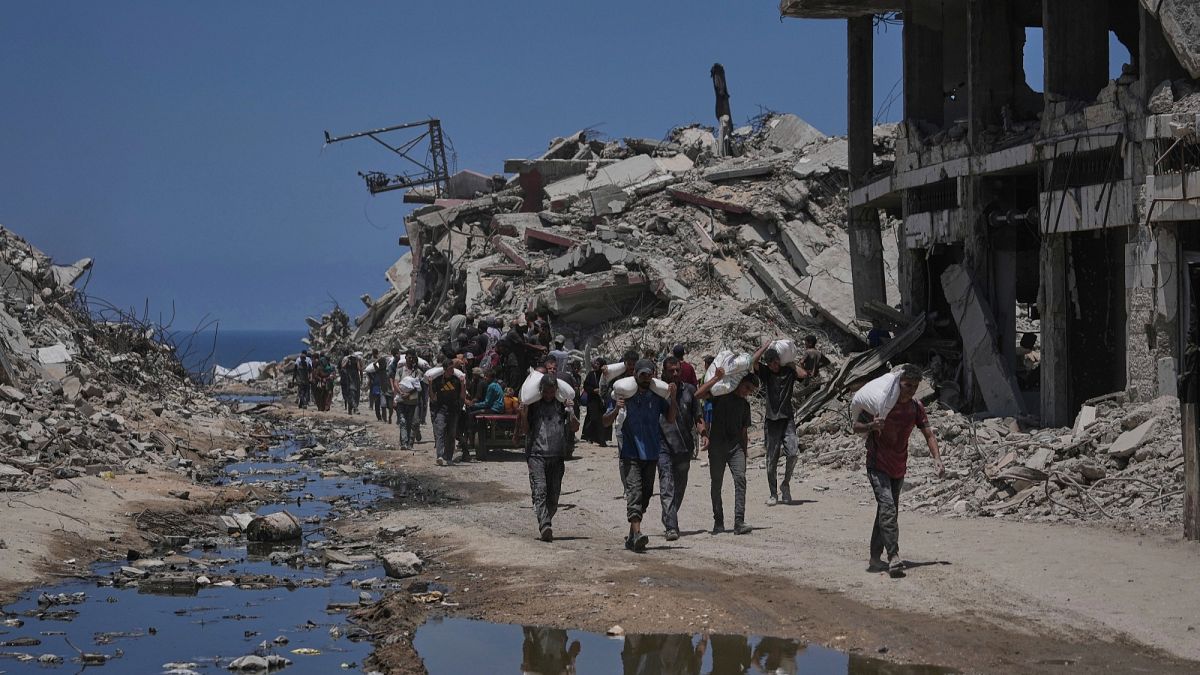

In recent days, the humanitarian situation in Gaza has reached a critical juncture as escalating conflicts and obstructions have led to dire consequences for the residents. The central issues at the heart of this crisis include soaring malnutrition rates among children, faltering ceasefire negotiations, and a deepening humanitarian system collapse. These challenges call for urgent attention and coordinated international efforts to alleviate the ongoing suffering.
There is growing concern over the devastating impact on the youngest members of society as Gaza’s healthcare facilities grapple with an increase in child malnutrition cases. At the Patient’s Friends Hospital in northern Gaza, staff are overwhelmed by the number of children arriving in desperate need of nutritional support. Many of these children are severely malnourished, exhibiting such extreme weakness that they struggle to move or even cry. Health providers are facing heartbreaking scenarios where once healthy children are succumbing to hunger-related deaths, marking a tragic escalation in an already critical aid crisis.
The condition is further aggravated by the increasing collapse of Gaza’s humanitarian infrastructure, as highlighted by the United Nations Relief and Works Agency for Palestine (Unrwa). Speaking on the growing challenges, Philippe Lazzarini, head of Unrwa, expressed alarm over the situation, noting that frontline relief workers are fainting from hunger themselves, underlining not just the physical toll but also the collapse of the support systems meant to aid those in need.
Despite these severe conditions, hopes for a ceasefire have diminished. Recent diplomatic efforts, previously seen as a beacon of hope for relief, have come to an impasse. The US has withdrawn its team from the ceasefire talks in Qatar, with special envoy Steve Witkoff citing a perceived lack of cooperation and commitment from Hamas to halt hostilities. This setback underscores the complexity and volatile nature of the negotiations, impacting any progress towards a peaceful and stable environment for Gaza residents.
The ongoing crisis in Gaza is compounded by broader geopolitical tensions, such as the situation on the Thailand-Cambodia border where clashes have erupted, contributing to regional instability in Southeast Asia. While international focus may shift between global conflicts, the immediate needs of Gaza’s population remain acute and pressing. Notably, nearly a quarter of the children attending Médecins Sans Frontières clinics are now reported as malnourished, drawing significant concern from aid organizations worldwide.
As the international community closely monitors these unfolding developments, the urgency for a concerted humanitarian and diplomatic response is paramount. There remains a pressing call for renewed efforts in negotiation and aid delivery to address the multifaceted challenges faced by Gaza’s population. Initiatives such as France’s recognition of Palestinian statehood signal attempts at diplomatic engagement, but the immediate focus must remain on addressing the daily realities of hunger and conflict endured by individuals in the region.
In conclusion, the Gaza humanitarian crisis stands as a solemn reminder of the complexities and human tragedies that arise from unresolved conflict and inadequate support systems. With children on the forefront of this suffering, as exemplified by the dire conditions reported in local hospitals and aid facilities, there is an urgent need for a collaborative and sustained effort from the international community to ease the humanitarian burden and pave the way for long-term stability in the region.
Source: {link}
